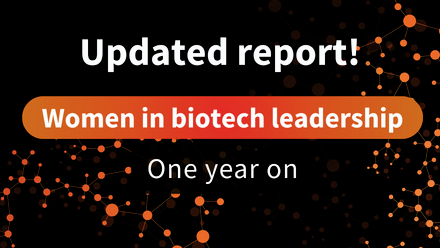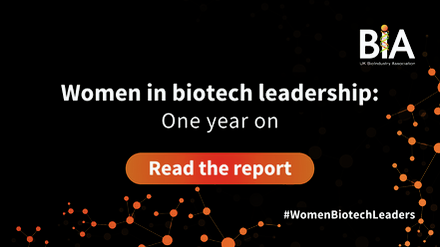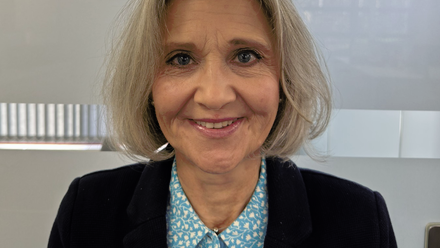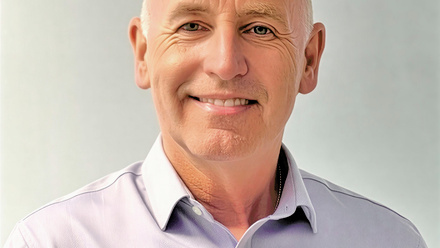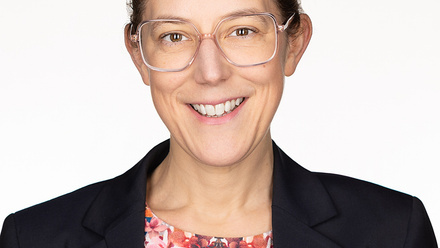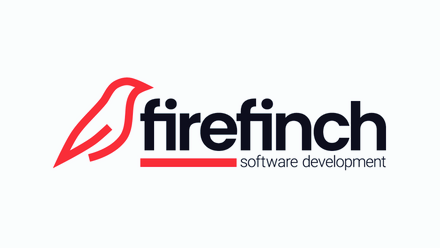Cancer Research Horizons announces winners of its 2025 Innovation and Entrepreneurship Awards
Cancer Research Horizons, the innovation arm of Cancer Research UK, has announced the winners of its third Innovation and Entrepreneurship Awards.
Translating cutting-edge science into patient benefit is no easy feat. It requires leadership, collaboration and determination to navigate the many challenges between the lab and the market. The Innovation and Entrepreneurship Awards celebrate the people who embody these qualities to drive innovation and inspire a new generation of entrepreneurs to tackle cancer.
Dr Alessia Errico, Associate Director of Search and Evaluation at Cancer Research Horizons, said:
These remarkable innovators demonstrate the determination and collaborative spirit essential to transform scientific discoveries into real-world solutions. Their entrepreneurial leadership and drive shows what’s possible when excellence meets bold thinking, inspiring us all to accelerate progress and bring tangible benefit to people affected by cancer.
Read about all the honourees below. The full list of runners up and award criteria are available here.
- Early Career Entrepreneur of the Year
Winner: Jessica Corry
Jessica Corry is the CEO and co-founder of Xterna, which is developing enhanced nucleic acids to target specific cell types. She was previously a postdoctoral fellow in the Applied Biotechnology Lab at the Francis Crick Institute. - Entrepreneurial Group Leader of the Year
Winner: Tim Witney
Tim Witney leads the Witney Lab at King’s College London, which is pioneering radionuclide-based imaging agents that target intracellular biomarkers overexpressed in cancer. - Woman Entrepreneur of the Year (sponsored by Mewburn Ellis)
Winner: Natalie Mount
Natalie Mount, CEO of Cytospire Therapeutics, is advancing a portfolio of next-generation immune cell engagers. She is also a venture partner at Abingworth and previously led Adaptate Biotherapeutics from its inception to its successful acquisition by Takeda Pharmaceuticals. - New Start-Up of the Year
Winner: Trogenix
Founded by Steve Pollard, Trogenix is a University of Edinburgh spinout building a precision viral immunotherapy platform to treat aggressive cancers. Emerging from stealth mode in 2024, it has already shown promising preclinical results for its lead programme targeting glioblastoma. - Further, Faster, Together (Industry-Academia Collaboration)
Winner: Cambridge Children’s Hospital Innovation Hub
Cambridge Children’s Hospital Innovation Hub is a collaboration between Cambridge University Hospitals and Illumina to accelerate genomic diagnostics for children. By enabling rapid whole-genome sequencing and translational research, the team aims to better understand how diseases develop in childhood.
Special recognition categories
Four special awards recognised contributions to the academic cancer entrepreneurial field. The judging panel selected winners from shortlists chosen by Cancer Research Horizons.
- Entrepreneurship Recognition Award
Winner: Peter Parker
Professor Peter J. Parker is internationally recognised for groundbreaking research on protein kinase C and related signalling pathways that underpin modern targeted cancer therapies. A prolific entrepreneur and mentor, he has founded multiple biotech companies, including PIramed, Symansis and FASTBASE Solutions, and held leadership roles across the Francis Crick Institute, MRC, and King’s College London, driving innovation from discovery to patient impact. - Horizon Explorer Recognition Award
Winner: eDyNAmiC
eDyNAmiC is the Cancer Grand Challenges team recognised for their groundbreaking research redefining our understanding of extrachromosomal DNA (ecDNA) in cancer. Led by Professor Paul Mischel at Stanford, their work has revealed how ecDNA drives tumour evolution and resistance, culminating in a trio of landmark Nature papers. This extraordinary achievement opens up a new frontier in oncology with real potential to transform patient care. - Start-Up Achievement Recognition Award
Winner: Myricx Bio
Founded by Ed Tate, Roberto Solari and Andrew Bell at Imperial College London, Myricx Bio develops novel antibody drug conjugates using its proprietary NMT inhibitor payload platform to target treatment-resistant cancers. In 2024, the company raised £90m in one of Europe’s largest Series A funding rounds to advance its pipeline into the clinic. - Translational Project of the Year Recognition Award
Winners:
The Microsatellite Instability Plus (MSI-Plus) assay
Led by Professor Sir John Burn, the MSI-Plus assay for colorectal cancer is a groundbreaking test developed by Newcastle University and Newcastle upon Tyne Hospitals NHS Foundation Trust. Delivering 100% accuracy and rapid results, it meets NICE recommendations for all colorectal cancer patients and is now ready for national rollout – bringing real-world impact to thousands of patients each year.
MGUS – A Rapid Platform for Integrated Monoclonal Protein Detection and Quantitation
Led by Dr Jennifer Heaney at the University of Birmingham, this project has developed an innovative at-home test to monitor patients with monoclonal gammopathy of undetermined significance (MGUS), a precursor to multiple myeloma. By providing fast, affordable results, the test aims to reduce diagnosis delays and improve care for thousands at risk of progressing to this serious cancer.
Cancer Research Horizons announced the winners on 10 July 2025 during an awards ceremony at Merchant Taylors’ Hall, London, where academics, entrepreneurs and industry leaders came together to celebrate the innovations that will benefit people affected by cancer.

